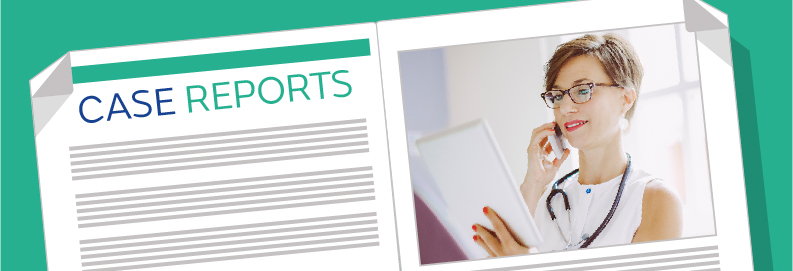Safeguarding adults - Wales
The Care Act (2014) sets out the framework for local authorities to use (alongside health and social services)to protect adults considered at risk from abuse or neglect.
Read moreArticle contains
Tagged in...
Making audio and visual recordings of patients
Making and using audio and visual recordings of patients can benefit medical training, research and treatment. However, it poses risks for doctors regarding consent and confidentiality. In addition, all recordings from which living individuals can be identified constitute personal data and are subject to the provisions of the Data Protection Act.
Read moreArticle contains
Tagged in...
Reporting deaths to the Coroner - Northern Ireland
If a death occurs in a violent or unnatural manner, in custody, or suddenly but without certain cause, a coroner has a duty to enquire into the death. This factsheet sets out the role of a coroner, the reporting process and what will happen once you have reported a death to the coroner.
Read moreArticle contains
Tagged in...
Confidentiality – Disclosures relating to patients unable to consent - Northern Ireland
You owe a duty of confidentiality to all your patients, past or present, even if they are adults who lack capacity. You may be asked to provide information from the medical records of patients who are incapable of giving consent, are aged under 18, or have died. This factsheet gives you further information about dealing with these circumstances.
Read moreArticle contains
Tagged in...
Health charges for visitors and migrants - England
The Immigration Act 2014 and recently updated regulations on charging overseas visitors for NHS care have led to changes in the way overseas visitors and migrants are charged for NHS care. Although mainly an administrative issue, there are key points that need to be understood by clinicians to ensure that patients are treated appropriately and their information is safeguarded.
Read moreArticle contains
Tagged in...
Controlled drugs - England
Under the Misuse of Drugs Act (1971) and the Misuse of Drugs Regulations (2001), GPs have a responsibility for controlled drugs (CDs) within their practice. This factsheet highlights what you should be aware of when carrying, storing and recording controlled drugs.
Read moreArticle contains
Tagged in...
Access to medical reports - England
Doctors may, on occasion, receive a request from a patient’s employer for a medical report to be delivered directly to the HR department, without the patient seeing it. However, before any medical report can be provided, you must be satisfied that the patient has given valid consent to the release of the information. This factsheet looks at the issues surrounding medical reports for employers and other organisations, and offers advice to doctors who are asked to write reports.
Read moreArticle contains
Dealing with non-compliant patients - Northern Ireland
A doctor’s primary concern is to do their best for their patients; this includes giving advice and treatment, and arranging investigations in accordance with the current evidence base and the patient’s best interests.
Read moreArticle contains
Tagged in...
Safeguarding children - Wales
The GMC states that “Whether or not you have vulnerable children or young people as patients, you should consider their needs and welfare and offer them help if you think their rights have been abused or denied.” Surgery consultations, home visits, accident and emergency admissions and contact with other professionals who work with children help to build up a picture of a child’s situation.
Read moreArticle contains
Tagged in...
Safe prescribing - Wales
Medication errors account for approximately 20% of all clinical negligence claims against doctors in both primary and secondary care. The costs associated with adverse events and inappropriate prescribing in the UK has been estimated at more than £750 million per year. This factsheet gives advice about avoiding prescribing errors.
Read moreArticle contains
Tagged in...
Safeguarding children - England
The GMC states that “Whether or not you have vulnerable children or young people as patients, you should consider their needs and welfare and offer them help if you think their rights have been abused or denied.” Surgery consultations, home visits, accident and emergency admissions and contact with other professionals who work with children help to build up a picture of a child’s situation.
Read moreArticle contains
Consent - The basics - England
Respect for patients’ autonomy is expressed in consent law; to impose care or treatment on people without respecting their wishes and right to self-determination is not only unethical, but illegal.
Read moreArticle contains
Tagged in...
Making audio and visual recordings of patients - England
Making and using audio and visual recordings of patients can benefit medical training, research and treatment. However, it poses risks for doctors regarding consent and confidentiality. In addition, all recordings from which living individuals can be identified constitute personal data and are subject to the provisions of the Data Protection Act.
Read moreArticle contains
Tagged in...
Making audio and visual recordings of patients - Scotland
Making and using audio and visual recordings of patients can benefit medical training, research and treatment. However, it poses risks for doctors regarding consent and confidentiality. In addition, all recordings from which living individuals can be identified constitute personal data and are subject to the provisions of the Data Protection Act.
Read moreArticle contains
Tagged in...
Safeguarding children FAQs - England
The GMC states that “doctors play a crucial role in protecting children from abuse and neglect”. Child maltreatment includes neglect and physical, sexual and emotional abuse. The following frequently asked questions are designed to advise MPS members what to do and who to contact, should they suspect children are at risk of, or are experiencing, harm.
Read moreArticle contains
Tagged in...
Communicating with patients by text message - Scotland
Text messaging allows practices to target and contact hundreds of patients within minutes. Patients can respond by text with replies automatically forwarded to a specified email address. Many practices are signing up to using a text messaging service to inform patients of appointments, flu vaccinations etc.
Read moreArticle contains
Tagged in...
Needlestick injuries - Scotland
Needlestick injuries can be classified as any piercing wound caused by a hypodermic needle, or by other sharp instruments or objects such as scalpels, mounted needles, broken glassware, etc. This factsheet sets out the main concerns for healthcare professionals and what to do when needlestick injuries happen.
Read moreArticle contains
Clinical negligence claims – What to expect - Northern Ireland
A clinical negligence claim is a demand for financial compensation for alleged harm caused by substandard clinical care. Common reasons for claims include failure or delay in diagnosis, or incorrect treatment. In fact, many claims arise out of poor communication.
Read moreArticle contains
Making the complaints process easier
MPS Complaints Adviser Sue Taylor explains how using the NHS Complaints Advocacy Service can help practices
Read moreArticle contains
Tagged in...
Confidentiality – Disclosures without consent - Wales
Certain circumstances can mean you are obliged to disclose information about a patient, even if you do not have their consent; under other circumstances, disclosure may be justifiable. This factsheet gives you further information about these circumstances.
Read moreArticle contains
A day in the life of a medical student in theatre
Medical records - Wales
Good medical records – whether electronic or handwritten – are essential for the continuity of care of your patients. Adequate medical records enable you or somebody else to reconstruct the essential parts of each patient contact without reference to memory. They should therefore be comprehensive enough to allow a colleague to carry on where you left off.
Read moreArticle contains
Needlestick injuries - Northern Ireland
Needlestick injuries can be classified as any piercing wound caused by a hypodermic needle, or by other sharp instruments or objects such as scalpels, mounted needles, broken glassware, etc. This factsheet sets out the main concerns for healthcare professionals and what to do when needlestick injuries happen.
Read more




